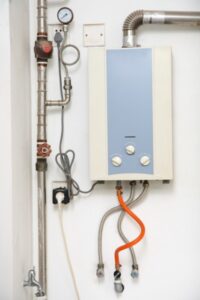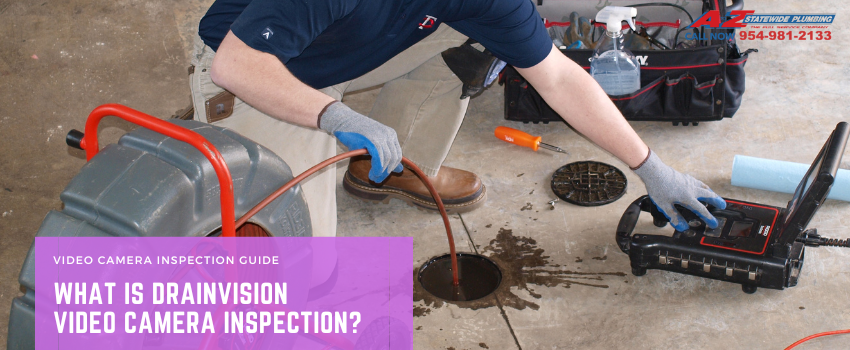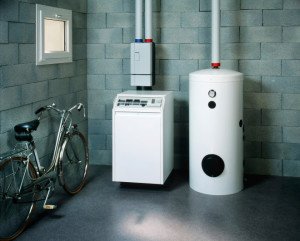Call Us at (877) 959-3534 for Plumbing Service
In Ottawa,Ontario, the law is clear about who is responsible for plumbing repairs but it may not be obvious at times. The short answer to who is responsible for plumbing repairs is the landlord. The landlord of the rental property is always responsible, except for those that are the result of normal wear and tear. If a tenant experiences a plumbing problem they should first try to contact the landlord. If the landlord does not respond or cannot be reached, then the tenant can call a plumber themselves.
It’s important to remember that if a tenant damages something in their unit through negligence or misuse, they will be held responsible and may have to pay for repairs.
The Residential Tenancies Act (RTA) sets out the rights and responsibilities of landlords and tenants in Ontario.
Section 20 of the RTA states that the landlord is responsible for
The repair of the residential complex, except to the extent that the damage or deterioration is caused by the willful or negligent conduct of the tenant, another occupant of the complex or a person permitted in the complex by the tenant.
This means that, generally speaking, if something in your unit needs to be repaired and it’s not your fault, you should contact your landlord. Your landlord must then make the necessary repairs in a timely manner.
Call Us at (877) 959-3534 for Plumbing Service
1. What is the Residential Tenancies Act (RTA) and what does this mean for who pays the plumbing?
The Residential Tenancies Act (RTA) is a law that sets out the rights and responsibilities of landlords and tenants in Ontario. So if a tenant in Ottawa experiences a plumbing problem, they should call their landlord.
Who is responsible for plumbing repairs then?
In general, if something in your unit needs to be repaired and it’s not your fault, you should contact your landlord. Your landlord must then make the necessary repairs in a timely manner.
2. What are a landlord’s responsibilities in Ottawa under the RTA?
The landlord is generally responsible for repairing damage to the rental unit, unless the damage was caused by the tenant’s negligence or misuse. As mentioned already, according to section 20 of the RTA, the landlord is responsible for
The repair of the residential complex, except to the extent that the damage or deterioration is caused by the willful or negligent conduct of the tenant, another occupant of the complex or a person permitted in the complex by the tenant.
3-What are the tenant responsibilities in Ottawa under the RTA?
Tenants are responsible for keeping their rental unit clean and in good repair. They must also not damage the unit or allow anyone else to damage it. If a tenant damages something in their unit through negligence or misuse, they will be held responsible and may have to pay for repairs.
4-What should I do if I have a plumbing problem with my rental unit that needs to be repaired?
If you are renting a unit in Ottawa and have a plumbing problem that needs to be repaired, you should contact your landlord. Your landlord must then make the necessary repairs in a timely manner.
5-Can I repair the damage myself and deduct the cost from my rent?
No. You cannot repair the damage yourself and deduct the cost from your rent. If you do so, you may be evicted. The landlord is also responsible for cleaning the hallways, stairwells, and any other common areas in the apartment building. If there are any messes or spillages in these areas, it is the responsibility of the landlord to clean them up. (Source)
6. Are there any exceptions to this rule?
There are some exceptions to this rule. For example, if you damage something in your unit through negligence or misuse, you will be held responsible and may have to pay for repairs. Another exception is if the repair needed is due to normal wear and tear. This is defined as
deterioration that results from the intended use of a residential complex or part of it.
For example, if a pipe bursts and causes water damage to your unit, this would not be considered normal wear and tear–the landlord would be responsible for repairing the pipe and fixing the water damage. However, if a doorknob becomes loose due to normal use over time, this would be considered normal wear and tear and the tenant would be responsible for repairing or replacing it.
In summary, Ottawa landlords are responsible for all repairs, except for those that are the result of normal wear and tear. If a tenant experiences a plumbing problem, they should first try to contact the landlord. If the landlord does not respond or cannot be reached, then the tenant can call a plumber themselves. The Residential Tenancies Act (RTA) sets out the rights and responsibilities of landlords and tenants in Ontario, so if you have any questions about your specific situation, be sure to consult with an expert. This post only serves to answer general questions about plumbing.
Call Us at (877) 959-3534 for Plumbing Service



